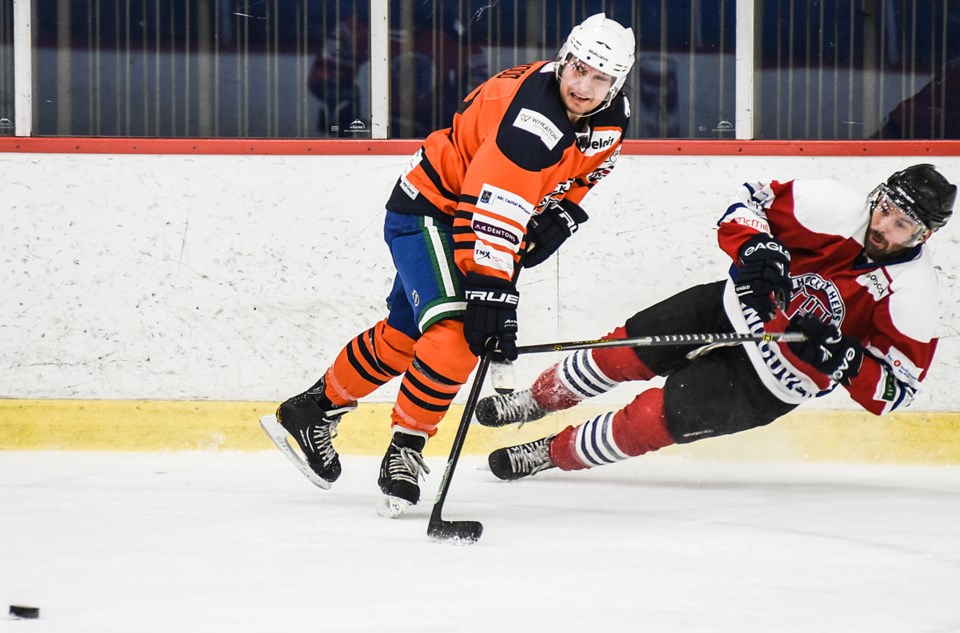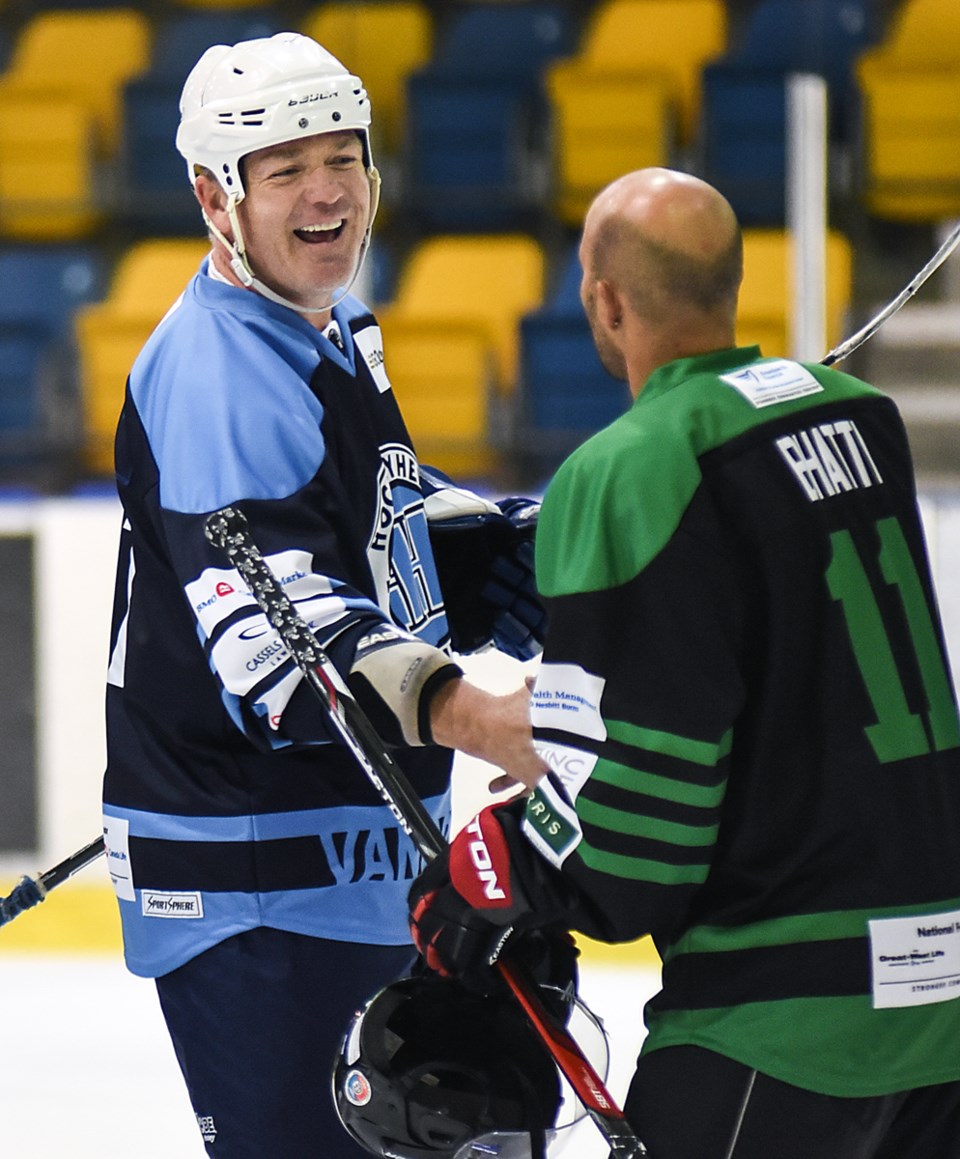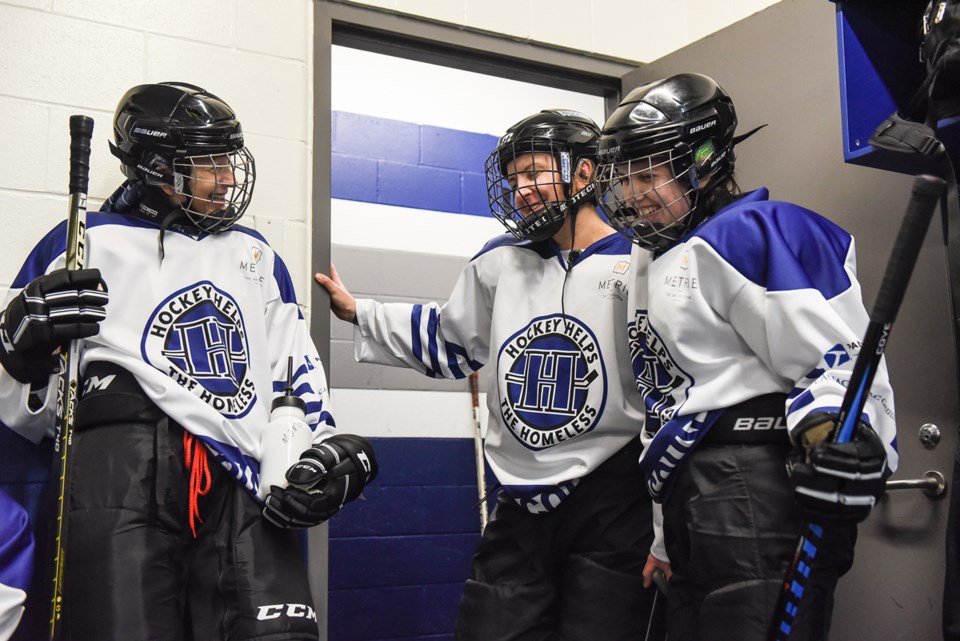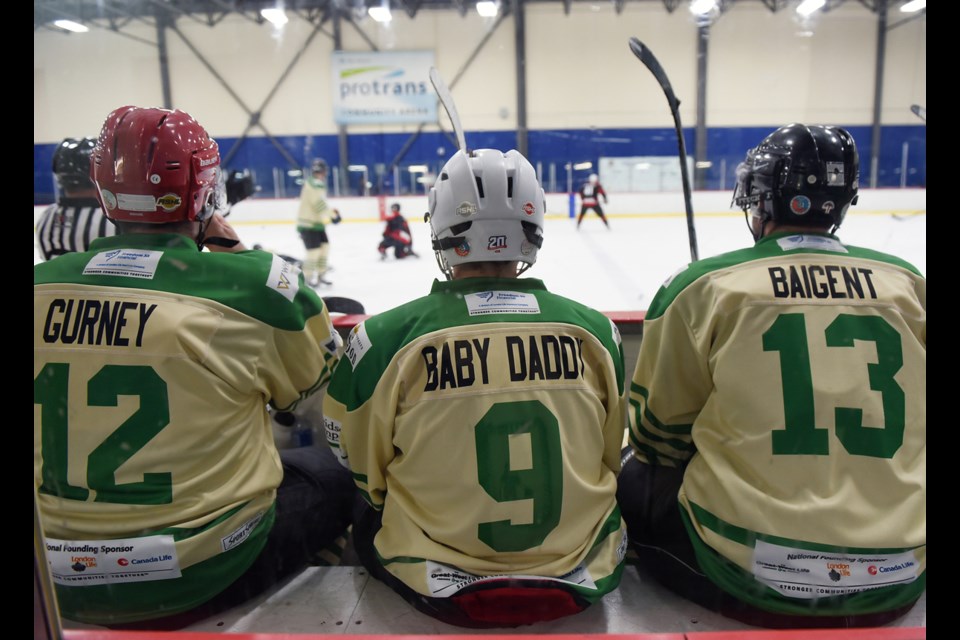Sometime during Friday morning’s registration, organizers of the annual Hockey Helps the Homeless tournament realized Â鶹´«Ă˝Ół»is not just a hockey town but also a giving town.
The annual fundraising tournament is held across Canada on dates throughout the winter and into the spring. Each player fundraises a minimum of $350 in addition to paying the $150 tournament fee, and funds raised in each city go towards that city’s homeless support programs. In its ninth year at UBC’s Thunderbird Sports Centre, Â鶹´«Ă˝Ół»players raised $620,000 smashing last year’s record — and all the other cities’ records for that matter — of $550,000.
“The hockey is the draw, there’s no doubt. But I really do think we convert people and get them paying more attention to the homeless issue,” said HTTH executive director Ryan Baillie. “Yes, we’ve raised over $660,000 dollars. Yes, we’ve got 200, 300 players, but each of those players has 10, 15, 20 donors, so the message becomes amplified well beyond the people that are here playing.”
Ěý

Ěý
Some of the local organizations that will receive help next year include the Urban Native Youth Association, Covenant House, Powell’s Place, Rain City Housing and Lookout Society. The HHTH accepts proposals from these organizations and then decides how to divvy up the funds; Baillie estimated the net will be in the $425,000 range once the tournament costs have been accounted for. Last year, for example, HHTH purchased three vehicles for Lookout to assist with transporting clients and for its outreach programs.
Aside from raising money for a good cause, the draw of Friday’s tournament was playing hockey with the pros. The four teams on the women’s side featured former national team’s Danielle Dubé, Cherie Piper and Delaney Collins with coaching expertise from former Canucks Darcy Rota, Dennis Kearns and Chris Oddleifson. All 14 men’s teams had a couple former National Hockey League players on the roster, which included ex-Canucks Jyrki Lumme, Greg Adams, Kyle Wellwood, Kirk McLean, and Geoff Courtnall — to namedrop a few.
Part of the fun of playing with the pros is when they turn it on. The guys in the black and green (all players were given HHTH team jerseys and socks) were in the game until Brad May deked around their defense with seconds left on the clock to send a laser of a shot over the goalie’s shoulder. The only reaction from the losing side was: “Huh. I should really get his autograph — I have two of his jerseys."
Ěý

Ěý
To suit up in the same dressing room as the pros was an experience in itself. Jeremy Groves, May’s teammate, loved every minute. “To hear all the stories from Brad May about playing with Anaheim, the rollercoaster playoffs and taking the cup home — that was pretty cool.”
May, who now works as a broadcaster for the Las Vegas Golden Knights and as an NHL analyst, says he doesn’t have time to hit the ice these days, so doing it for a charity tournament is a perfect excuse.
“When I come out here, I just love it. But I gotta carry my own bag,” he said, laughing. “Yeah, this is awesome. I just go out and enjoy. And laugh at yourself when you screw up.”
While the first HHTH tournament was held in Montreal in 2004, its roots go back to 1996 when a group of Toronto businessmen decided to hold a charity tournament with their regular ice time at the Maple Leaf Gardens. They raised eight thousand dollars and purchased survival kits and handed them out to the city’s homeless.Ěý Gary Scullion, part of that original group, decided to begin HHTH as a registered charity and, by 2008, the tournament was held across the country in Montreal, Ottawa, Toronto, Calgary and Vancouver.
Ěý

Ěý
For Baillie, who joined the head office crew of six in Toronto two-and-a-half years ago, says the tournament opened his eyes to homelessness.
“You think you know what homelessness looks like until you start talking to 13-year-olds that are homeless and 17-year-olds who got kicked out of their home because they identified as gay,” he said. “The middle-aged man on the street begging was always the initial image that came to mind and my view has completely turned around. I have an appreciation for the journey and how the homeless men, women and children we support got there. It’s scary because it really does feel like it could be any of us with a couple strokes of bad luck.”
According to the 2017 Â鶹´«Ă˝Ół»regional homeless count, there are 3,605 homeless people in Metro Â鶹´«Ă˝Ół»â€” a 30 per cent increase from 2014 with Aboriginal and senior homelessness on the rise.
@rebeccablissett



